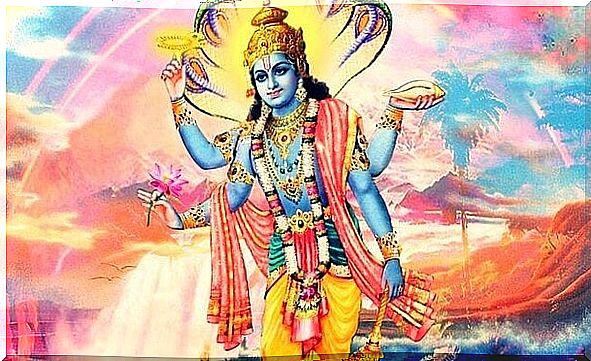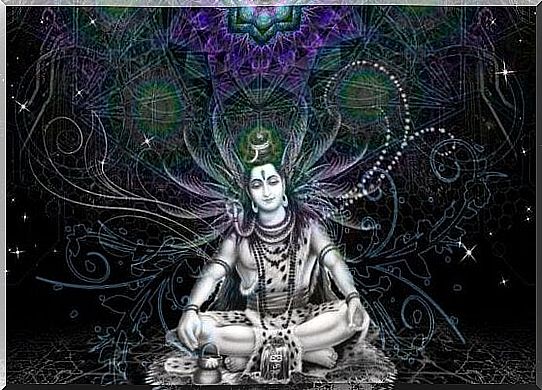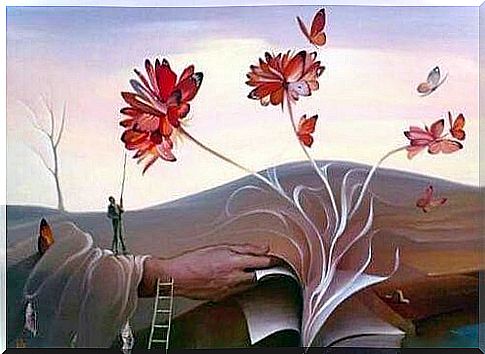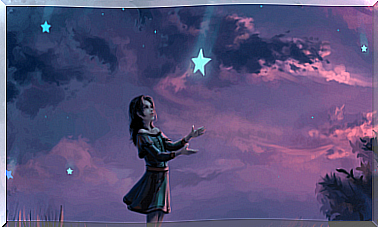7 Wonderful Hindu Proverbs

Hindu proverbs condense the wisdom of this ancient people and extremely rich in history and culture. Mysticism and spirituality have always occupied a prominent place in this universe.
Hindu culture is absolutely fabulous. In it there is a surprising mix of expressions resulting from many different peoples. That’s why its richness is immense and is reflected in all its cultural manifestations, including the proverbs.
In Hindu culture there are Arab, Buddhist, English and Portuguese influences, in addition to the obvious contributions of local cultures. That’s why Hindu proverbs have become a multicolored display of perspectives on life. In this article we will talk about seven of them.
“What can a blind man see, even if a lamp is placed in his hand?”
– Hindu proverb –
1. Adversity in Hindu Proverbs
One of the most beautiful Hindu proverbs is about adversity. Says, “There is no tree that the wind has not shaken.” It’s a beautiful metaphor to remind you that nothing and no one escapes adversity. This is inevitable.

Bad times are like that wind that shakes the branches of the tree and challenges its stability. What stands out in the message is the fact that, regardless of the life we lead, we are always exposed to moments of crisis that shouldn’t be seen as something strange, because adversity is part of life.
2. A heart at peace
The theme of inner peace is one of the most recurrent in Hindu proverbs. Their religions and philosophies often refer to a state of balance in which tranquility is achieved and peace is sealed with oneself and the world.
Thus, one of the Hindu proverbs says: “The heart at peace sees a feast in every village.” This means that it all starts within each one of us. If the spirit is at peace, all is well in the outside world. In the same way, internal wars lead us to see everything more obscurely.
3. Reading and action
Regarding reading, one of the Hindu proverbs says: “The ignorant are surpassed by those who read books. They are the ones who learned from reading, who understood what they read, who put their hands to work”.
The message, in this case, aims to give great importance to the cultivation of the intellect and action based on knowledge. It establishes a scale that begins with reading, continues with the assimilation of what has been read, and ends with knowledge-based action.

4. About the generosity of the soul
Most philosophies agree to uphold solidarity and brotherhood as supreme values. These values are what make us a race subject to the same vicissitudes and with a common destiny.
That’s why one of the Hindu proverbs says: “The tree does not deny its shade, not even the woodcutter.” It is a poetic statement to indicate that this mission of serving others encompasses even those who harm us. More than an exchange, it’s a life mission.
5. The way to happiness
There aren’t many real paths to happiness, but one of them, without a doubt, is to perform noble deeds for others. This is remembered by one of the Hindu proverbs that says, “If you want to be happy, you must want the happiness of others too.”
Personal happiness always influences the happiness of others. It’s much easier to feel good about life and the world when those around us are happy too. Those who try to hurt others cannot achieve happiness.

6. Planting and harvesting
All events in life are intertwined. Things happen because there is a cause that creates them. However, we tend to view different moments as isolated situations. We often don’t notice that we are always sowing and also reaping.
In reference to this, one of the Hindu proverbs says: “The good we do the day before is that which will bring us happiness in the morning.” It has to do with the idea that kindness to others results in personal happiness.

7. The ocean and the drop of water
The particular and the universal are not mutually exclusive concepts, and are always intimately linked. They correspond and determine each other. In the universal, many particular elements are present. And the particular also includes a universe.
That’s exactly what this Hindu proverb says: “God is also hidden in the ocean and in a drop of water.” In this case, the word “God” should not be taken literally. It refers to this idea of “higher” and not to a specific deity.
All these Hindu proverbs have beauty and depth in common. This culture has very specific ways of manifesting itself, and this is very clear in these statements that fascinate and magnify the spirit.









